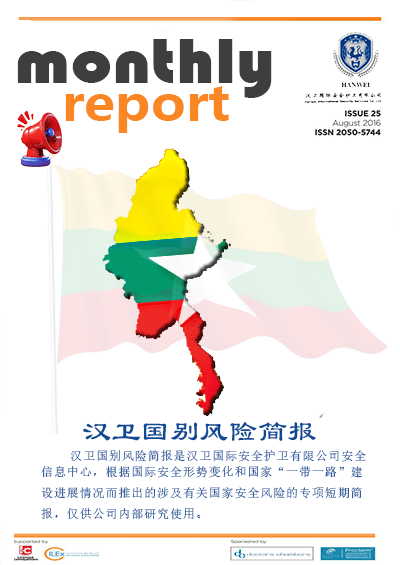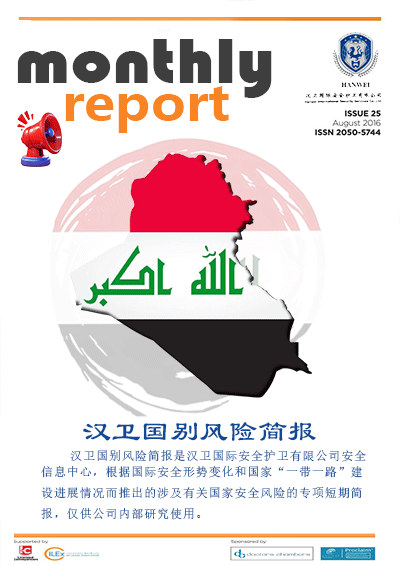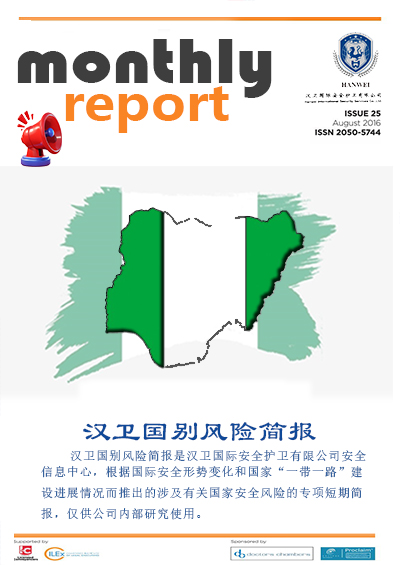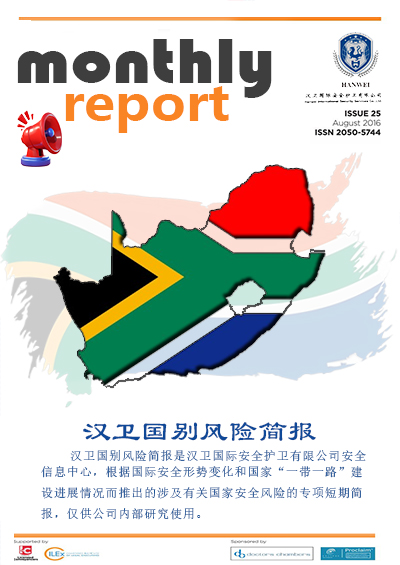South Africa September Security Situation Review
Researcher 006
According to monitoring reports from Hanwei International's security officers stationed in South Africa and related media coverage, our company has documented nearly 250 (incomplete statistics) various security incidents, including frequent occurrences of murder, extortion, kidnapping, theft/robbery, etc. The unstable domestic political and economic situation also poses significant threats to the lives and property of Chinese citizens and employees of Chinese enterprises in South Africa.
Hanwei International analysis suggests that South Africa's overall security situation this month remains complex and challenging.Politically, the Basic Education Laws Amendment (BELA Bill) signed by President Ramaphosa has caused political turmoil, marking the first genuine crisis for the Government of National Unity; corruption scandals within the Department of Home Affairs have exposed illegal transactions among government officials. Economically, following last month, issues such as workers' wage increases, unemployment, and water supply crises have shown signs of "spreading," presenting a grim outlook. Regarding social security, violent incidents including murder, extortion, and kidnapping remain prevalent this month, mostly involving enterprise security operations, with businesses of all sizes facing security threats. From September 2 to 5, 2024, President Ramaphosa attended the 2024 Forum on China-Africa Cooperation Summit and paid a state visit to China. During his visit, Ramaphosa explicitly promised that the South African government would implement a series of stringent measures to address rising crime rates and visa backlogs, which are two critical issues that South Africa has long faced and urgently needs to resolve.
First, the Government of National Unity faces its first crisis, and corruption scandals in the Department of Home Affairs are exposed.On September 13, 2024, President Ramaphosa signed the controversial Basic Education Laws Amendment (BELA Bill) at the Union Buildings in Pretoria. The bill amends parts of the South African Schools Act of 1996 and the Employment of Educators Act of 1998, aiming to strengthen the governance structure of South Africa's education system and ensure more standardized and orderly school management. The most notable policy adjustment is the transfer of enrollment decision-making power from school governing bodies to provincial education departments to enhance management of school admissions and prevent potential unfair or irregular enrollment practices. School governing bodies have long been accused of excluding African students in certain areas and perpetuating racial inequality. This also touches on the most contentious aspect of the bill—Afrikaans-medium education. Some Afrikaans-medium schools have been accused of discriminatory enrollment practices, using language policies to limit non-Afrikaans-speaking students' access, thereby monopolizing more educational resources. Supporters of the new education bill, such as the Economic Freedom Fighters (EFF), argue that adjusting language policies—requiring public schools to use more than one official language for instruction—can effectively address this issue and achieve fairer distribution of educational resources. However, Afrikaans-speaking communities and some conservative groups, like the Democratic Alliance (DA), strongly oppose this, viewing it as discrimination and cultural suppression against Afrikaans-speaking communities. This political divide has intensified controversy surrounding the new education bill. Recently, the anti-corruption unit of the Department of Home Affairs has received over a hundred corruption-related reports, revealing illegal sales of IDs and passports by internal officials, with some passports priced as high as R45,000 (South African Rand). This serious corruption scandal has drawn widespread public attention.
Second, South Africa's economy continues last month's crisis trend, with an overall grim outlook.South Africa enters a massive "wage battle" annually, followed by large-scale protests and demonstrations. To address such crises, the South African Local Government Association announced on September 9 a historic five-year wage agreement with unions represented by the South African Local Government Bargaining Council, aimed at providing planned wage increases for local government employees. The agreement, effective from July 1, 2024, to June 30, 2029, has faced opposition from municipalities like Cape Town, which warned that the wage increases over five years are unsustainable and could lead to severe budget shortfalls. This highlights the current economic pressures and financial difficulties faced by multiple municipalities. On September 10, reports indicated that South Africa's unemployment rate continues to rise, with the latest data showing it has become the country with the highest unemployment rate globally, with youth unemployment rates being particularly alarming. Statistics South Africa's Q2 2024 report shows the official unemployment rate has increased from 32.9% to 33.5%. Experts have unanimously stated that without urgent measures, South Africa will face severe social unrest.
Third, businesses and shops face severe security threats, ranging from extortion to murder.Recently, multiple shops, small supermarkets, and street vendors in Johannesburg's city center have faced extortion, being forced to pay "protection fees" for so-called security. Refusal to pay often leads to verbal threats or armed robbery, crippling businesses. Johannesburg Public Safety Department Head Mgcini Tshwaku stated that municipal security teams have received 35 extortion-related complaints in the past two months, involving supermarkets, street vendors, and construction sites. Several local construction sites have faced extortion, with demands for money and threats to shut down sites, displaying brazen behavior. On September 27, reports revealed that Cape Town official Lungelo Mbandazayo, who investigated companies linked to municipal projects, became a target for assassination after angering gangs. Fortunately, the assassination plot was thwarted by police. Reports indicate that Mbandazaya's investigations revealed connections between several companies involved in municipal projects and gang activities, leading to their blacklisting. This move disrupted gang operations, prompting plans for "gang retaliation." Last Friday evening, local SWAT teams intercepted two suspicious vehicles near Mbandazaya's home, discovering AK-47 rifles and Uzi semi-automatic weapons and arresting multiple suspects. Mbandazaya is now under heavy security protection, wearing bulletproof vests daily, with armed escorts equipped with heavy weapons to prevent further assassination attempts.
Hanwei International analysis suggests that South Africa's overall security situation this month remains complex and challenging.
Politically,the Basic Education Laws Amendment (BELA Bill) signed by President Ramaphosa has caused political turmoil, marking the first genuine crisis for the Government of National Unity; corruption scandals within the Department of Home Affairs have exposed illegal transactions among government officials.
Economically,following last month, issues such as workers' wage increases, unemployment, and water supply crises have shown signs of "spreading," presenting a grim outlook.
Regarding social security,violent incidents including murder, extortion, and kidnapping remain prevalent this month, mostly involving enterprise security operations, with businesses of all sizes facing security threats. From September 2 to 5, 2024, President Ramaphosa attended the 2024 Forum on China-Africa Cooperation Summit and paid a state visit to China. During his visit, Ramaphosa explicitly promised that the South African government would implement a series of stringent measures to address rising crime rates and visa backlogs, which are two critical issues that South Africa has long faced and urgently needs to resolve.
Chinese enterprises and individuals in South Africa are advised to focus on the following precautions:
First, stay updated on the country's political and economic news and enhance security awareness.Recently, the Basic Education Laws Amendment (BELA Bill) signed by President Ramaphosa may trigger violent protests by Afrikaans-speaking communities and conservative groups; rising unemployment and the lack of practical conditions for the five-year wage increase agreement may further spark protest demonstrations, potentially escalating into violent incidents. Meanwhile, the surge in unemployed youth may fuel more community crimes. It is advised to stay informed about relevant political developments, avoid discussing political topics in public, steer clear of crowded gatherings or protest sites, avoid high-risk security areas, refrain from traveling alone at night, and avoid carrying large amounts of cash or bank cards with substantial balances.
Second, enterprise operational security involves multiple aspects; take preventive measures in advance.This month's social security incidents in South Africa primarily focus on enterprise operational security. Taking Johannesburg as an example, multiple supermarkets, street vendors, and construction sites in the province have faced extortion and even murder threats. Chinese enterprises in South Africa are advised to assess security risks at operational sites, avoiding remote areas with high security risks or poor transportation; install sturdy doors, windows, protective barriers, and locks to secure offices, factories, and warehouses; hire professional security companies or trained personnel for patrols and access control; establish good communication channels with local government departments, police, and private security companies. In cases of gang extortion, remain calm, preserve evidence, report to local police promptly, and protect legal rights through legal avenues; if necessary, request special protection measures from police, such as increased patrols or temporary police stations near enterprise premises.




